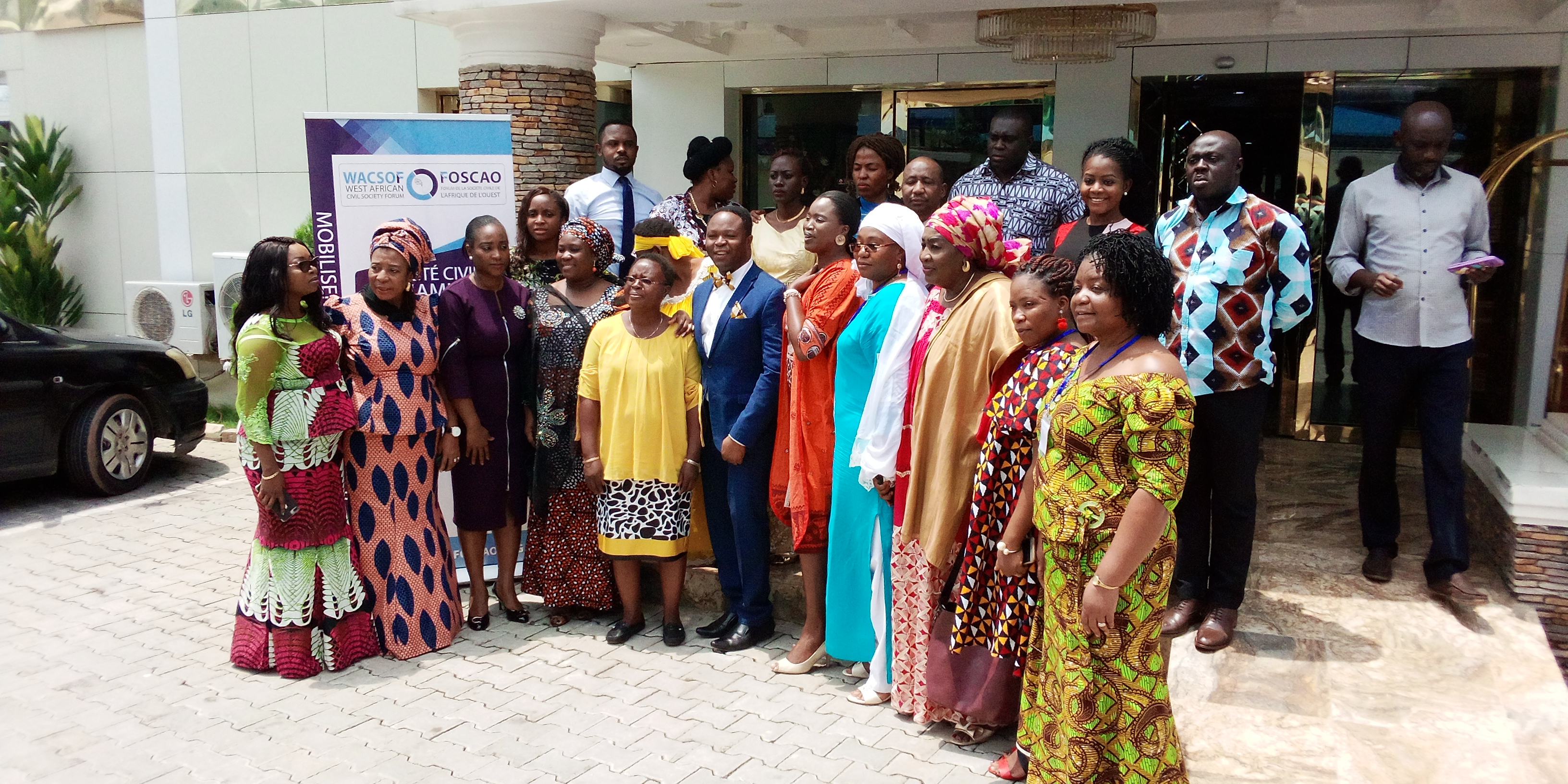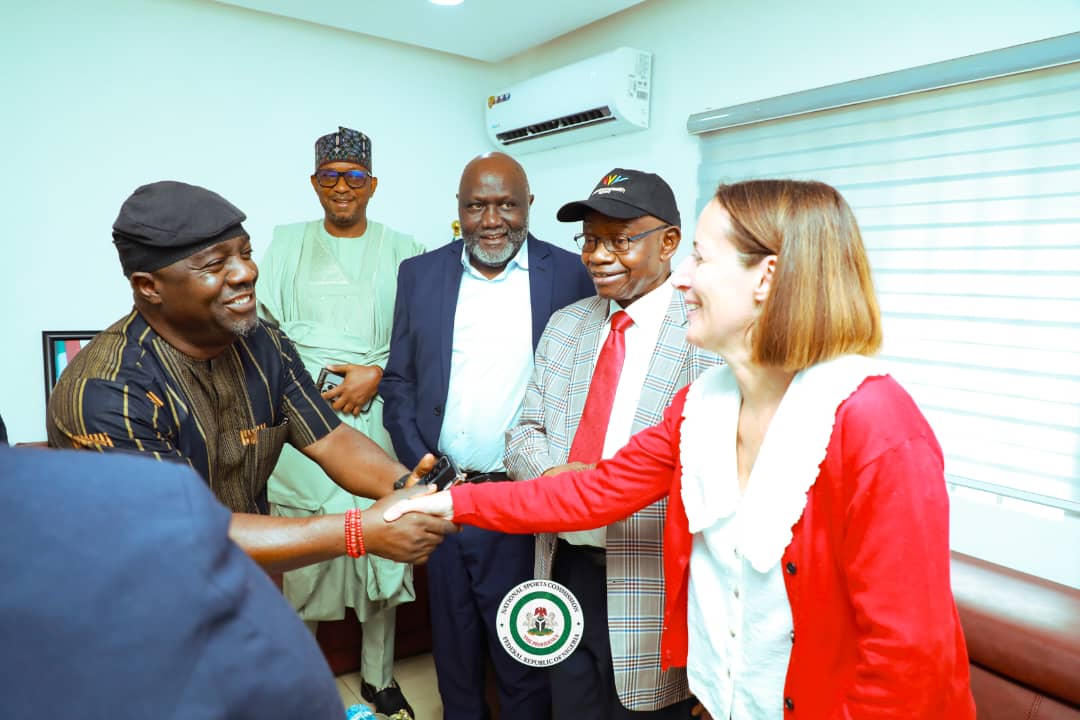Featured
WACSOF Seeks ECOWAS‘s Support Toward Women’s Participation In Mining Sector

Joel Ajayi
West Africa Civil Society Forum WACSOF/FOSCAO has called on ECOWAS countries support toward implement policies that would enable the active participation of women in the extractive industry that will bring growth and development to the region.

The 21 women from 10 Africa countries of WACSOF made this appeal in Abuja on Tuesday during a press briefing on an advocacy visit on ECOWAS by women organizations working in the extractive sector in West Africa and regional consultative women’s participation in mineral resources governance.
Speaking at the event the General Secretary of WACSOF, Komlan Messie opined that the essence of the meeting is to advocate for active women participation in the mining sector.
He urged ECOWAS to be gender mainstreaming in public policies at the regional and national level.
According to him, we are to here review what civil society has been doing in women the participation of extractive industry because WACSOF is the umbrella body of Civil Society in West Africa.
“What we are doing today is an advocacy visit to ECOWAS to bring to them the concern and their support in making a policy that will strengthen women participation in the extractive industry.
“We want women to be more involved in the governance of the extractive industry in West Africa and ECOWAS should play a leadership role to bring into effect the women dominant.”
He Admonished on ECOWAS fair to women, on education, policy making, entrepreneurship and participation for the benefit of all member states.
On her own, the Representative of WAKAM group affected the community in Ghana Hannah Owasu-Koranteng lamented the dilemma of the women in the extractive industry: “We are here to advocate for women participation in the extractive industry in each ECOWAS state.
“The extractive industries remain the male-dominated industry as compared to the other industries in Africa. It is important to involve women in it because women have the same “right to development” as men, so if extractive industries diminish their access to economic and social development, this human right has been violated.
“That is why we are appealing to the ECOWAS Commissioners, Government, and Director who can help in the woman participation in the exploration of mineral resources at the community level, national and regional level.
“Women participation in the sector is very low and in any community, women are the majority, employment the ration of women in the mining sector is less than 3% when it comes to compensation of women, it’s less than 3% when it comes governances the role of women is even less than 2% so, with this figure women are disadvantages. We want women to be recognized decision wise; we are talking about a minimum of 30% representation been women in the legislative process.
Featured
Nigeria’s Historic Bid for the 2030 Commonwealth Games: A Call for National and Global Support

Joel Ajayi
Nigeria is poised to make history as it seeks to host the Centenary Commonwealth Games in 2030, a monumental opportunity that promises to transform the nation’s economy, infrastructure, and global standing.
More than a sporting spectacle, the Games would serve as a catalyst for development across multiple sectors, leaving behind a legacy of national pride and sustainable growth.
The benefits of hosting the Games extend far beyond the sports arena. Nigeria stands to gain both empirical and non-empirical advantages, with direct, indirect, and induced impacts that will touch every corner of society. Infrastructural development will take center stage, with new facilities such as indoor sports halls, conference centers, and improved road networks reshaping urban landscapes while strengthening the nation’s capacity to host future international events.
Economic growth is another significant dividend. Over 10,000 jobs are expected to be created, spanning construction, facility management, event planning, and tourism services.
The hospitality industry will undergo major improvements as hotels and resorts are upgraded to meet international standards, while local restaurants, lounges, and tourist attractions will see a surge in patronage from international visitors. Small and medium enterprises, particularly in the transport, finance, and food service sectors, will become some of the greatest beneficiaries, as the Games generate new demand and expand opportunities for local businesses.
The Commonwealth Games will also accelerate the growth of Nigeria’s sports industry.
Investments in training facilities, coaching, and talent development will inspire a new generation of athletes, ensuring long-term benefits that extend beyond 2030, a major focus of the President Bola Tinubu administration.
At the same time, the process of preparing for the Games will create opportunities for Nigerians to learn new crafts, acquire technical skills, and engage in global-standard event management, thereby strengthening human capacity and innovation across industries.
Mallam Shehu Dikko, Chairman of the Nigeria Sports Commission, and Hon. Bukola Olopade, the Director General, have been widely recognized for their tireless and visionary leadership in repositioning Nigeria’s sporting sector.
Their commitment to facilitating infrastructural development and strengthening grassroots sports development has laid the foundation for Nigeria’s bold bid to host the 2030 Commonwealth Games. Under their leadership, the NSC is fostering strategic partnerships and driving innovation in sports administration, they have demonstrated the nation’s readiness to stage an event of such global magnitude.
Beyond the tangible gains, the hosting of the 2030 Commonwealth Games carries profound symbolic value. It would be a moment of unity and pride, a chance for Nigeria to showcase its cultural richness, resilience, and excellence to the world.
As a centenary edition, the Games would stand as a historic milestone not just for the Commonwealth but for Nigeria itself, cementing its place on the global stage as a capable, ambitious, and forward-looking nation.
The gains from hosting the Commonwealth Games can never be undermined or overemphasized. This is Nigeria’s time to step forward and show the world our resilience, and excellence. We call on every Nigerian, across sectors and communities, to support this noble aspiration.
Nigeria’s pursuit of the 2030 Commonwealth Games is a vision for transformation, a blueprint for national development, and a legacy project that will inspire generations to come.
-

 Featured6 years ago
Featured6 years agoLampard Names New Chelsea Manager
-

 Featured5 years ago
Featured5 years agoFG To Extends Lockdown In FCT, Lagos Ogun states For 7days
-

 Featured6 years ago
Featured6 years agoChildren Custody: Court Adjourns Mike Ezuruonye, Wife’s Case To April 7
-

 Featured6 years ago
Featured6 years agoNYSC Dismisses Report Of DG’s Plan To Islamize Benue Orientation Camp
-

 Featured4 years ago
Featured4 years agoTransfer Saga: How Mikel Obi Refused to compensate me After I Linked Him Worth $4m Deal In Kuwait SC – Okafor
-
Sports3 years ago
TINUBU LAMBAST DELE MOMODU
-

 News9 months ago
News9 months agoZulu to Super Eagles B team, President Tinubu is happy with you
-
Featured6 years ago
Board urges FG to establish one-stop rehabilitation centres in 6 geopolitical zones
